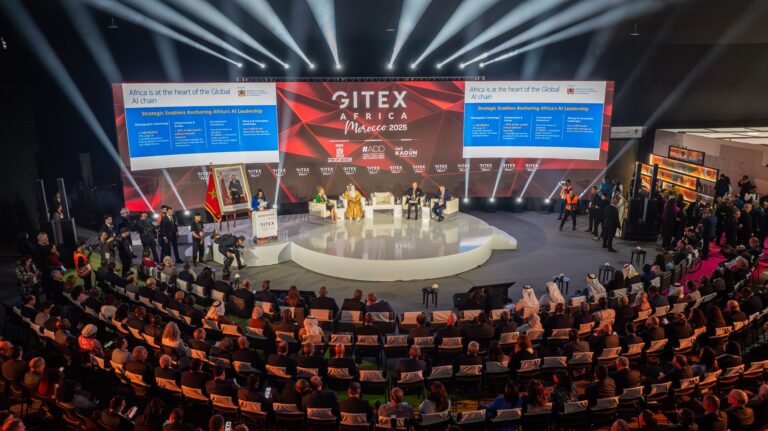As Dubai prepares to host GITEX Global 2025 — the world’s largest technology and startup showcase — the spotlight has shifted to Africa, where Morocco’s innovation ecosystem is fast gaining international recognition.
A recent feature by GITEX celebrated Anas Chanaa, co-founder and CEO of Nucleon Security, as one of the standout entrepreneurs to emerge from their Supernova Challenge. The competition, held during GITEX Africa 2023 in Marrakech, gave Chanaa’s cybersecurity firm a platform that soon attracted a $3.5 million funding round.
“Winning the Supernova Challenge gave us instant credibility and showed investors we were ready to scale globally,” Chanaa noted, reflecting on how the event opened doors to venture capital networks and strategic partnerships.
Why Supernova Matters
The Supernova Challenge isn’t just another pitch contest — it is a launchpad. Startups in AI, agritech, healthtech, and edtech compete for investor attention, while GITEX provides the stamp of credibility that accelerates global scaling. For entrepreneurs like Chanaa, it offers visibility, validation, and most importantly, access to the right networks.
The Nucleon Security Model
Chanaa’s company embodies the shift in cybersecurity priorities. With its zero-trust framework and AI-driven monitoring, Nucleon provides real-time protection for businesses against phishing, malware, and unauthorized access. The company already serves over 100 clients across Africa, aligns with European data protection standards, and emphasizes regional data sovereignty — a rare blend of compliance, scalability, and local trust.
Even global giants like Microsoft have acknowledged the company’s cutting-edge approach, underscoring Morocco’s ability to produce solutions of global relevance.
Morocco on the Tech Map
Nucleon’s success reflects a larger story: Morocco’s rise as a hub for innovation. The third edition of GITEX Africa in Marrakech drew over 52,000 visitors, 1,450 exhibitors from 138 countries, and nearly 740 startups — with Moroccans making up more than a third of participants.
Through initiatives like the “Moroccan 200” and partnerships with APEBI, Tamwilcom, and Flat6Labs, the country is creating an enabling environment for entrepreneurs. Collaborations with Huawei and other global firms are helping boost digital skills, while local startups like IT Toad Group, Zen Networks, and Nsayblik are making waves in AI, governance, and freelancing platforms.
GITEX Across Borders
After Marrakech, GITEX took the momentum to Nigeria — where conversations focused on Africa’s AI strategy — and then expanded to Thailand, hosting a dedicated biotech and digital health expo. Each stop builds anticipation for GITEX Global 2025 in Dubai, scheduled for October 13–17, where the world’s tech leaders, investors, and startups will converge.
A Continental Shift
For Africa’s entrepreneurs, the path to global recognition is no longer theoretical. Stories like Anas Chanaa’s prove that with the right platform, African startups can secure capital, win global clients, and redefine industries.
As GITEX Global approaches, Morocco’s example shows that Africa is not just participating in the digital revolution — it is actively shaping it.

